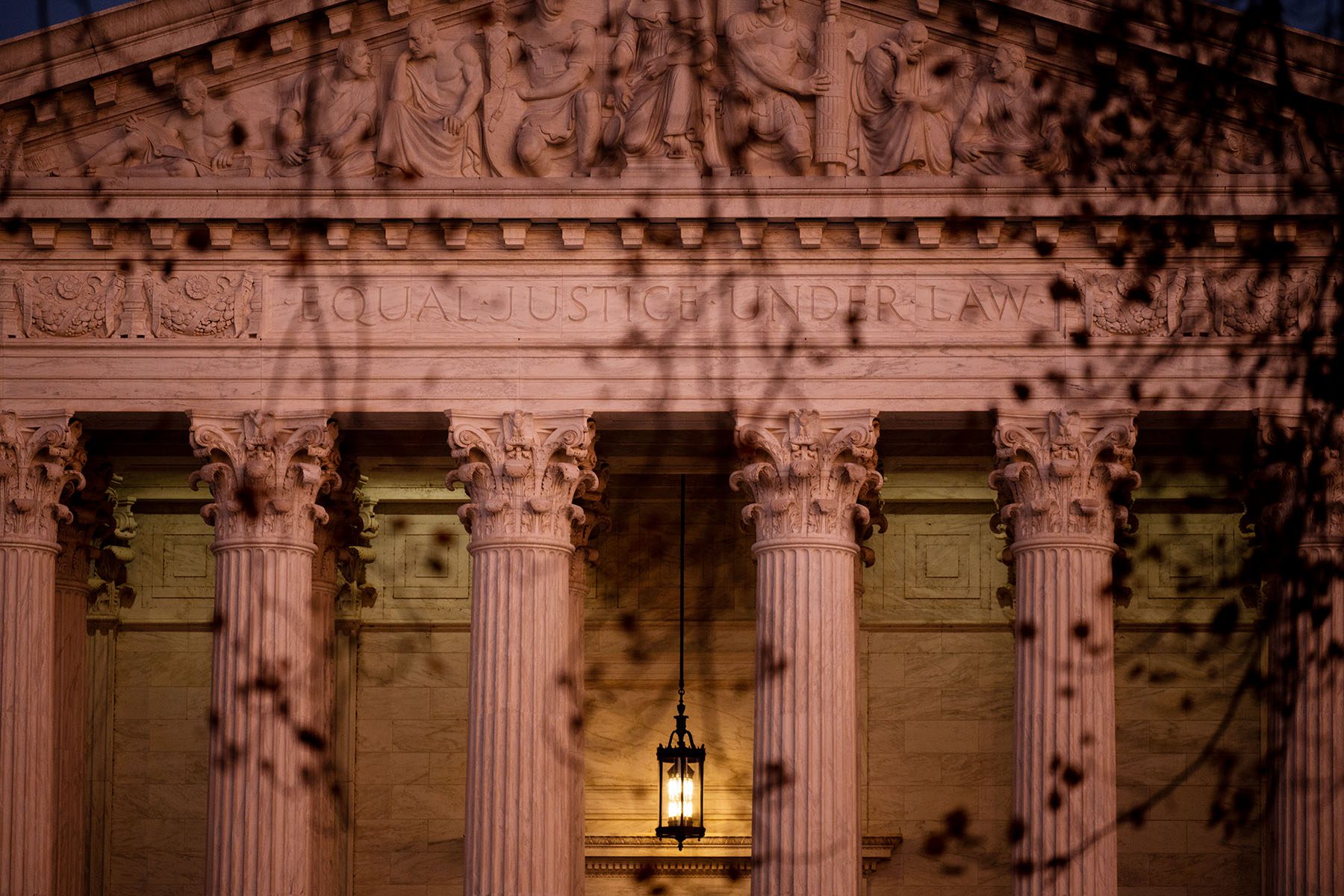Abortion providers challenging Texas’ six-week abortion ban have asked that the Supreme Court send their case to a district judge, a critical follow-up to a December ruling that could effectively end any challenges to the law.
Because of the law’s unique structure — rather than criminalizing abortion, it allows private citizens to sue anyone who helps someone end a pregnancy at six weeks or later — the state of Texas argued before the Supreme Court that the abortion ban did not fall within the purview of federal courts and could not be legally challenged.
On December 10, the Supreme Court held that state abortion providers could challenge the law in court — but narrowly, in a way that experts say could ultimately offer little if any meaningful recourse — and sent the case back to the United States Court of Appeals for the Fifth Circuit, where it has been, unmoving, ever since. Abortion providers are now asking for the Supreme Court to move the case along.
The court did not issue any kind of injunction blocking the abortion law, and the new filing represents an effort to change that. But it is widely considered a long shot, and it comes after weeks of delay. Despite the court’s ruling, the Texas abortion ban remains in effect.
Where do things currently stand? And where will they go next?
Where is the Texas case now?
There are two federal courts with jurisdiction over the Texas case, known as Whole Woman’s Health v. Jackson. The first is a district court in Austin, the U.S. District Court for the Western District of Texas. The second is the 5th Circuit Court of Appeals, a conservative appeals court that typically weighs in after the district court does.
Whole Woman’s Health, one of Texas’ largest abortion providers, had asked the Supreme Court to remand the case to the district court, which is considered friendlier toward the abortion providers’ legal challenge. The presiding judge in Austin, Robert Pitman, has previously ruled against the law, Senate Bill 8, issuing an injunction last fall that temporarily blocked it. If given the opportunity to do so, he is expected to make a similar decision in this case.
But so far, he has not had the chance to weigh in.
The state of Texas had argued that, instead of returning to the district court, the case should be remanded to the 5th Circuit, which has previously found in favor of the Texas law, and is considered one of the most conservative appeals courts in the country. On December 16, Supreme Court Justice Neil Gorsuch, who authored the court’s December 10 ruling, issued an order doing so.
What question is the appeals court considering?
In its December 10 ruling, the Supreme Court’s conservative majority held that providers challenging Texas’ abortion law could only sue a narrow class of defendants: the state’s health licensing boards, who could punish medical professionals for providing abortions after six weeks.
Texas officials have said that even licensing boards should not be sued, arguing that they don’t play any role in enforcing the Texas law. That is the specific question before the 5th Circuit, which has a hearing set for January 7. The 5th Circuit would also assess what role Texas’ state Supreme Court plays in litigating the abortion law.
If the appeals court decides that Texas’ licensing boards do not help enforce the Texas law — and therefore cannot be sued — it could put an end to any legal challenges attempting to block SB 8.
That’s because in its December 10 ruling, the Supreme Court held that abortion providers could not sue other state officials, mainly court clerks, despite their potential role in processing civil lawsuits, the threat of which have effectively ended access to most abortions in Texas.
On Monday night, Whole Woman’s Health asked the Supreme Court to intervene. They argued that there is no meaningful question the appeals court needs to resolve, because the Supreme Court has already said licensing boards can be sued under the law, and said the 5th Circuit should instead hand off the case to the district court in Austin.
And they expressed concern that further delays in processing — especially if the state supreme court must be involved — could imperil pregnant people in Texas seeking abortions.
“With a clear majority of this Court having held that the case may proceed past the motion-to-dismiss stage, the Fifth Circuit has no issues left to resolve on the appeal,” the request said.
What happens next?
Whole Woman’s Health has asked the Supreme Court to respond quickly, but there is no guarantee as to when they will answer the request or what they will say.
The form of petition the providers have filed — what’s known as a writ of mandamus — is not often granted. The Supreme Court must agree that the providers have been denied a legal right by someone who has abstained from performing their duty. In this case, the court would have to agree that the 5th Circuit’s has taken unnecessary delays in acting that have denied abortion providers the rights guaranteed by the December 10 ruling.
In the meantime, abortions after six weeks remain inaccessible in Texas. Research from last fall shows that abortions performed in Texas declined precipitously after the law took effect, though more recent data is not yet available.
Meanwhile, many people seeking abortions any later in pregnancy traveled to surrounding states — such as Oklahoma, Louisiana, Kansas and New Mexico — to obtain care. But that journey is unaffordable for many, particularly those who don’t have paid time away from work, access to a car or guaranteed child care. And clinics in neighboring states reported that they did not have enough medical providers or other resources to meet the increased demand for abortions.
Is there a time limit for a response?
There isn’t a deadline for when the Supreme Court has to respond, or when lower courts need to move forward with the Texas case. But longer delays mean more people unable to access abortions when they become pregnant. And legally, the situation is changing quickly.
On December 1, the Supreme Court heard arguments in another major abortion case, Dobbs v. Jackson Women’s Health.
In that case, examining a Mississippi law that would ban abortions after 15 weeks of pregnancy, the court considered overturning Roe v. Wade in its entirety, eliminating any federal protection to abortion. During oral arguments for that case, a majority of conservative justices appeared open to such a decision.
A ruling in the Dobbs case is expected in June or July. And if Roe v. Wade were to be overturned, it would be far easier for a lower court to uphold the Texas abortion law. Even if not, Texas — along with 20 other states — has other laws on the books that would effectively end legal abortions in the absence of a federal protection.
Some legal observers expect the courts to delay a decision on the Texas case until the Supreme Court rules on Dobbs.






